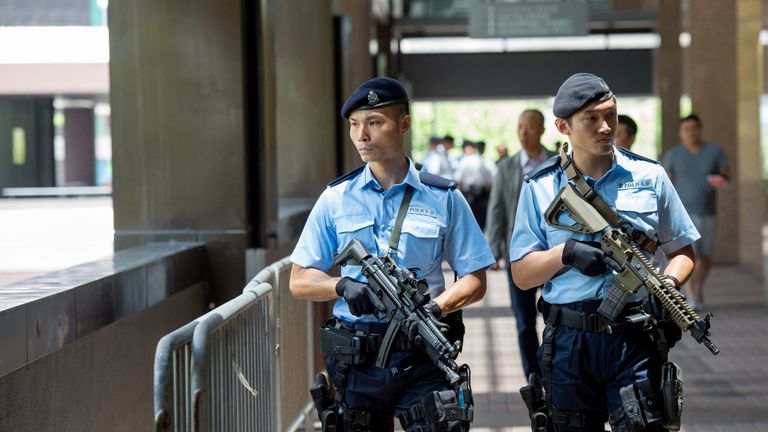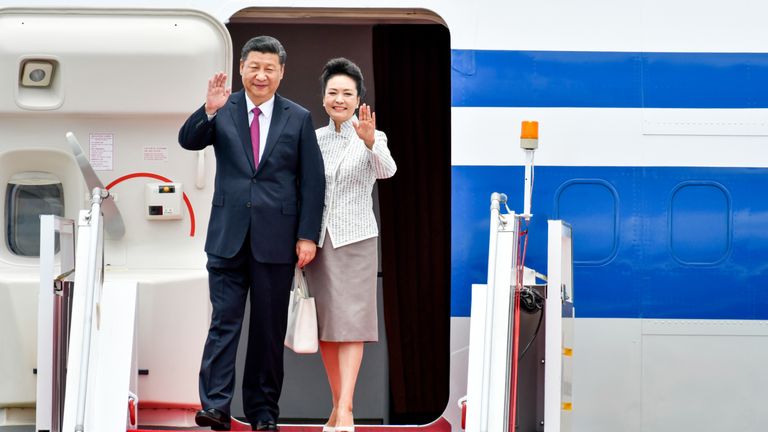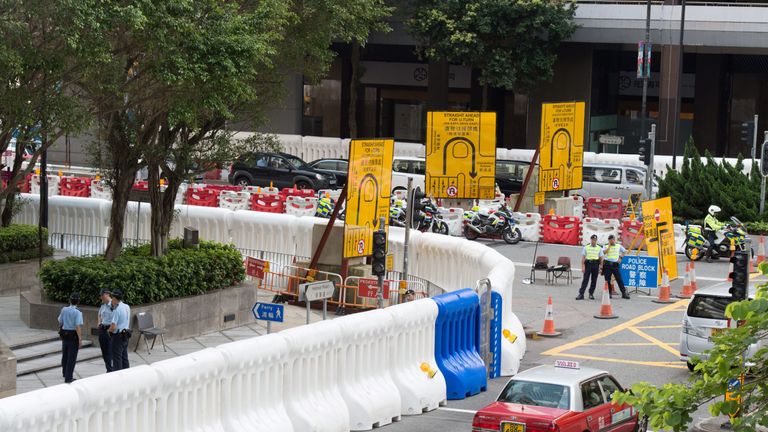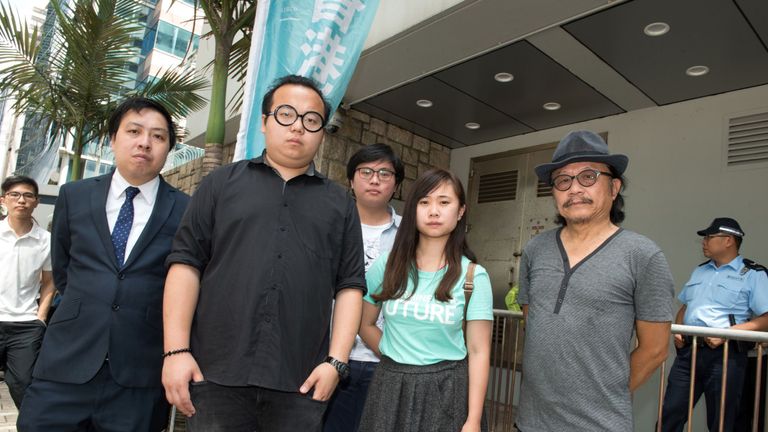Activists held amid heavy security ahead of Hong Kong anniversary
Pro-independence campaigners are promising to push ahead with a planned protest despite a police crackdown in the territory.
Friday 30 June 2017 07:08, UK
Protests are planned and heavy security is in place ahead of the 20th anniversary of Hong Kong's handover from British rule.
China's president Xi Jinping has arrived for the official celebrations on 1 July, in his first visit as head of state.
State television showed him being greeted by cheering, flag-waving crowds, and watching a children's performance at a cultural centre.
On Friday morning he reviewed 3,000 troops at the PLA barracks.
Parts of the territory have been sealed off, with heavy barricades ringing the area where President Xi will stay, while marine police patrol the harbour and airspace restrictions are in place.
Around a third of the territory's police force is said to be on duty.
Despite the security measures and a ban issued by police, organisers have vowed to go ahead with a planned protest on Friday evening.
The pro-independence Hong Kong National Party says its event, advertised on posters under the slogan "Crush the Chinese Colonisers", will be a vigil to mourn 20 years since the "fall" of Hong Kong.
A further annual protest is planned on Saturday, after Xi Jinping has left.
Twenty-six pro-democracy campaigners including Joshua Wong and Nathan Law were arrested after staging a protest near the Chinese leader's hotel on the eve of his arrival.
They were released in the early hours of Friday morning.
A spokesperson for the movement told Sky News they would continue to fight for their cause, whatever the consequences.
"We love Hong Kong and we think civil rights and human rights are the basic need of everyone," said Derek Lam, from the Demosisto party.
"We will fight for that, even if the police arrest us and put us into jail, we will not regret, because we are doing the right thing."
When Hong Kong was handed back to China in 1997, its citizens were promised their freedoms would be protected for 50 years, under what was known as the "one country, two systems" principle.
But 20 years on there are doubts about the strength of that guarantee.
Lam Wing Kee was one of five booksellers abducted by mainland security agents in 2015 after publishing works critical of the Communist Party leadership. Freedom of expression is meant to be protected in Hong Kong.
Mr Lam told us one of his colleagues, Gui Minhai, is still being held, and that he was pushed to the point of considering suicide during his own five month detention.
"I was very terrified because I was isolated, I did not have contact with the outside," Mr Lam said.
"I felt so powerless, that I had to face the whole regime on my own. I couldn't face it.
"They threatened to keep me in captivity forever, while nobody outside would know. No trials or charges would be needed.
"I started to think about committing suicide. I would rather commit suicide than face this reality."
Mr Lam said he had been warned on his release not to talk to the press, but he felt it was his duty as a Hongkonger to speak out.
The founder of Hong Kong's largest pro-Beijing party, Jasper Tsang, remembers taking part in the handover ceremony two decades ago and feeling it was "the start of a new era" as he watched the Chinese flag being raised.
He warned the territory was now at a crossroads, with the situation reaching a critical point.
"If 'one country, two systems' is to terminate, there will still be one country. Hong Kong can never break away from China, so what is going to end is this two systems set up.
"And if we no longer have two systems, the Chinese system will still be there."








